Two states have now held their nominating contests in the Republican presidential primary, and it’s becoming increasingly likely that Donald Trump will emerge as the victor.

Trump won both the Iowa caucuses and the New Hampshire primary that kicked off the nationwide primary calendar, where Republican voters will choose the nominee who will take on President Joe Biden in November.
A field that started at more than a dozen candidates was winnowed down to five ahead of the Iowa vote. Those results saw three more challengers — including the once-hyped potential frontrunner, Florida Gov. Ron DeSantis — drop out in quick succession, leaving just former U.S. Ambassador Nikki Haley to take on Trump in New Hampshire.
Haley has vowed to stay in the race after losing to Trump twice in a row. Both candidates will next face off in the Nevada caucuses on Feb. 8 and then South Carolina’s primary on Feb. 24.
Trump’s legal woes and minimal campaigning — he has skipped all of the primary debates — has done little to dampen voter enthusiasm for the former president. He’s polled well above his closest rivals both nationally and in the early primary states.
Here’s a look at each candidate remaining in the field (as well as those who have dropped out so far), what policies they support, and how they are faring with voters.
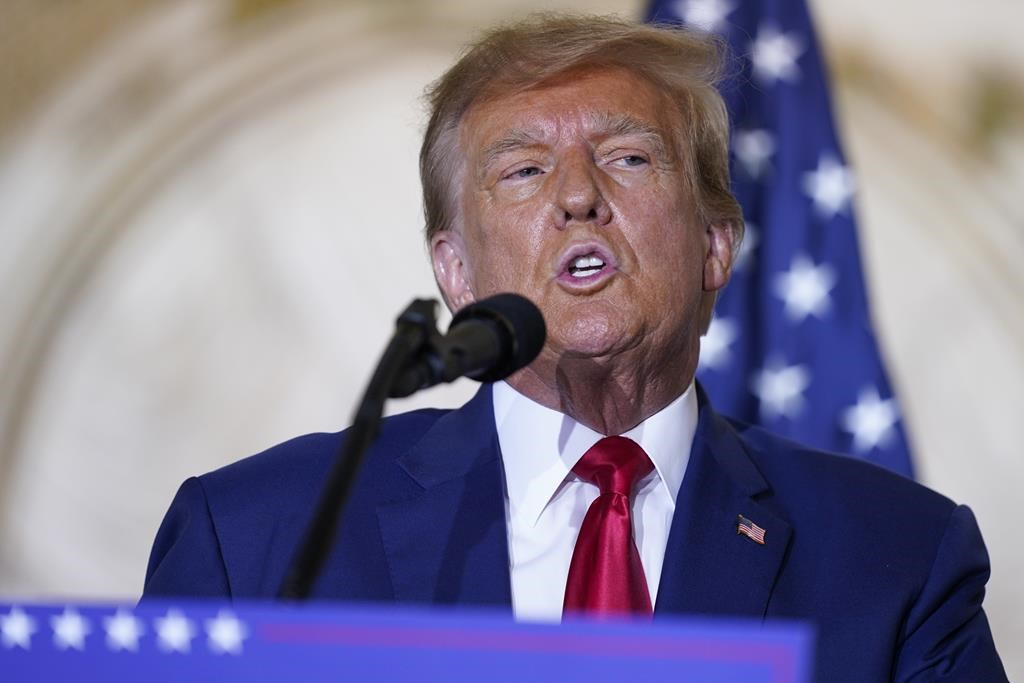
Donald Trump
Resumé: President (2017-2021)
Candidacy declared: November 2022
FiveThirtyEight national polling average: 68.5%
RealClearPolitics national polling average: 66.4%
Delegate count: 32
When Donald Trump announced his candidacy last November, the odds appeared to be stacked against him. His chaotic presidency had ended in a torrent of lies about his election loss to Joe Biden that culminated in the Jan. 6, 2021, assault on the U.S. Capitol by Trump supporters. He faced mounting legal scrutiny for his efforts to overturn the election results and his alleged mishandling of classified documents at his Mar-a-Lago resort in Florida.
On top of that, Republicans had just underperformed in the November midterm elections after several Trump-endorsed candidates lost their races, prompting party leaders to openly call for a different candidate to seek the White House in 2024.
Yet Trump’s early candidacy has appeared to benefit him. With no declared opponents for months, he was able to corner the market for campaign donations while negative narratives began to cement around potential candidates before they even entered the race.
His legal troubles haven’t appeared to hurt him. Despite four historic indictments — a federal election conspiracy case, a similar case in Georgia centred on racketeering charges, dozens of separate federal charges in the classified documents probe, and state charges in New York over hush-money payments to cover up an alleged affair during the 2016 campaign — and a civil fraud trial in New York that threatens his real estate empire, he has continued to draw in high levels of fundraising.
His polling lead over the rest of the Republican, too, has only grown more commanding with each indictment. The only question now is, can anything stop Trump’s seemingly inevitable comeback?
Notable policy positions: Hardline anti-immigration views, including a potential restart of his family separation policy; futuristic “Freedom Cities” built on federal land and focused on airborne transportation and rural-urban connections; negotiated federal standard for abortion; death penalty for human traffickers; military strikes on Mexican drug cartels.
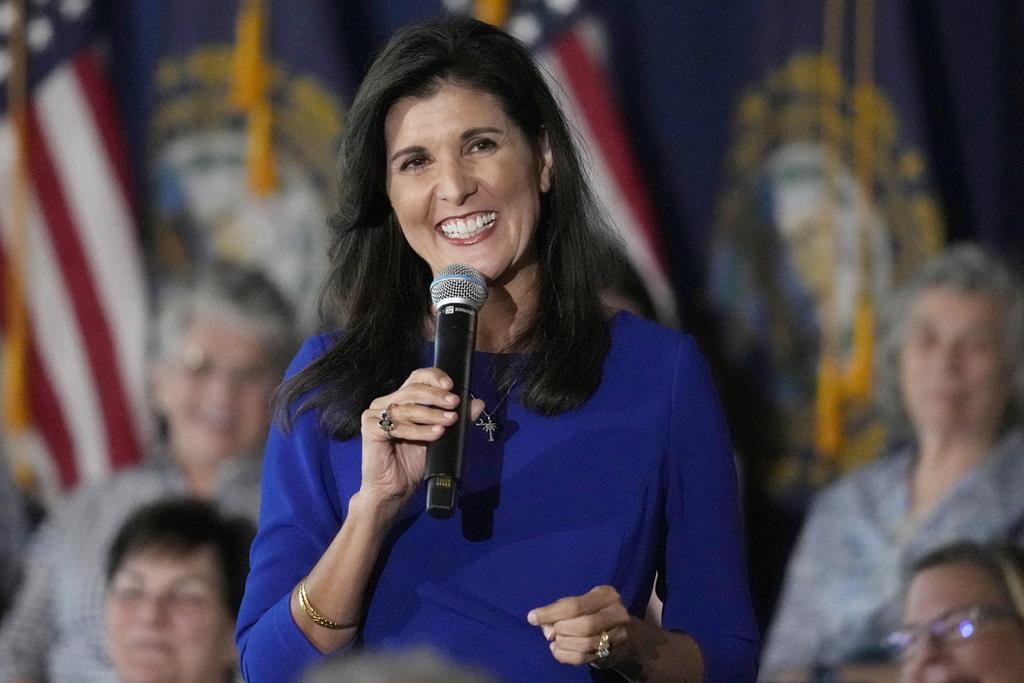
Nikki Haley
Resumé: U.S. Ambassador to United Nations (2017-2018), Governor of South Carolina (2011-2017)
Candidacy declared: February 2023
FiveThirtyEight national polling average: 12.2%
RealClearPolitics national polling average: 11.3%
Delegate count: 17
The first major candidate to enter the race to counter Trump, Nikki Haley’s main pitch in the early days of her campaign has been her relative youth. At 51, she says she can usher in a new generation of Republican leaders more sympathetic to the concerns of younger Americans than 76-year-old Trump.
Beyond age — including a call for mental competency tests for aging politicians — Haley has pitched herself as a more centrist alternative to the leading candidates.
She has attacked both Trump and DeSantis for not supporting a Ukrainian victory over Russia and criticized Republican leaders in some states for pushing extreme anti-abortion legislation, including a failed death penalty provision in her home state of South Carolina. But she has also taken positions in the so-called culture wars: during a CNN town hall, she equated the rise of transgender athletes in school with suicidal ideation in teenage girls.
Her strong performance in the debates led to a steady rise in the polls, eventually making her the new chief rival — and now sole remaining challenger — to Trump. Yet she remains far behind the former president in national polling and has yet to win a state primary contest.
Notable policy positions: Opposes red flag laws that would take firearms from people deemed a threat to themselves or others; increased mental health funding; seeking consensus on federal regulation for abortions; ending tech exports to China.
Dropped out
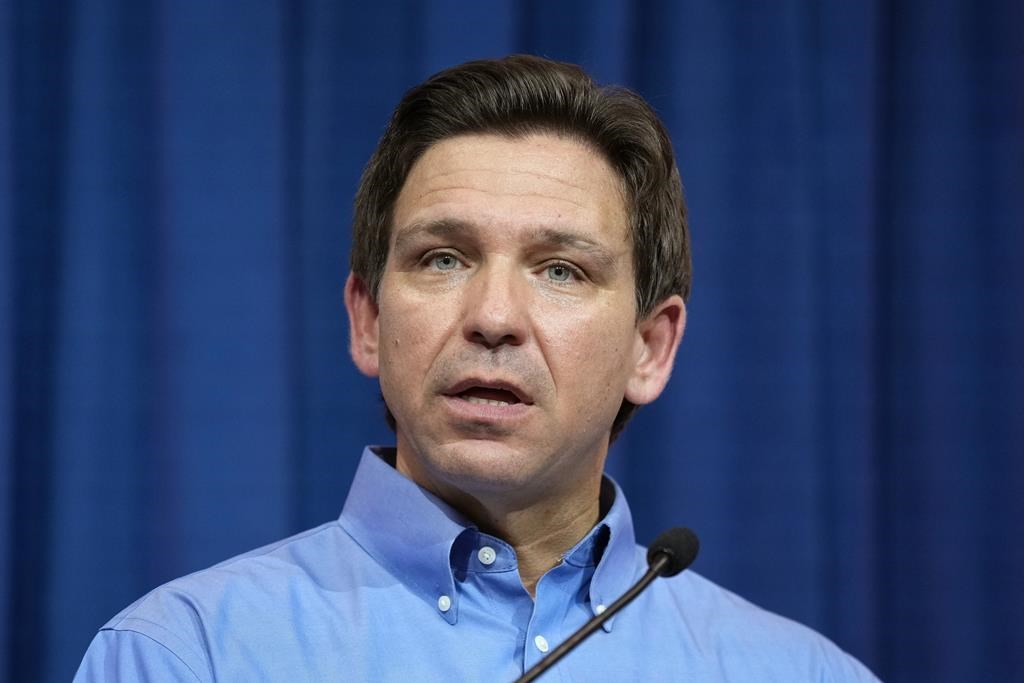
Ron DeSantis
Resumé: Governor of Florida (2019-present), U.S. House of Representatives (2013-2018)
Candidacy declared: May 2023
Candidacy ended: January 2024
Endorsement: Donald Trump
Ron DeSantis overwhelmingly won re-election as Florida’s governor by pursuing a deeply conservative agenda in the one-time battleground state. Almost immediately, Republican donors began making the case for DeSantis as a safer alternative to Trump to be their presidential nominee. But DeSantis’ apparent status as the new Republican standard bearer has seemed to weaken in the months since.
By the time he formally entered the presidential race in May, his polling average had dropped by double digits while Trump widened the gap, and those numbers have only continued to fall as his campaign trudges on. Over the summer, his campaign cut staff and replaced its leadership, with a mission to “reboot” his standing, but those moves have yet to produce results.
DeSantis’ “Florida blueprint” on hot-button issues like guns, abortion and education ultimately failed to make a strong connection with a national audience, who appeared to reject him more as they became more familiar with him. After finishing a distant second place in Iowa, he suspended his campaign and endorsed Trump.
Notable policy positions: Ending diversity and inclusion training and gender ideology discussions in all publicly-funded institutions (the so-called “war on woke”); opposition to public health restrictions and mandates for vaccines; “hard power” against China; lethal force against cross-border drug smugglers.
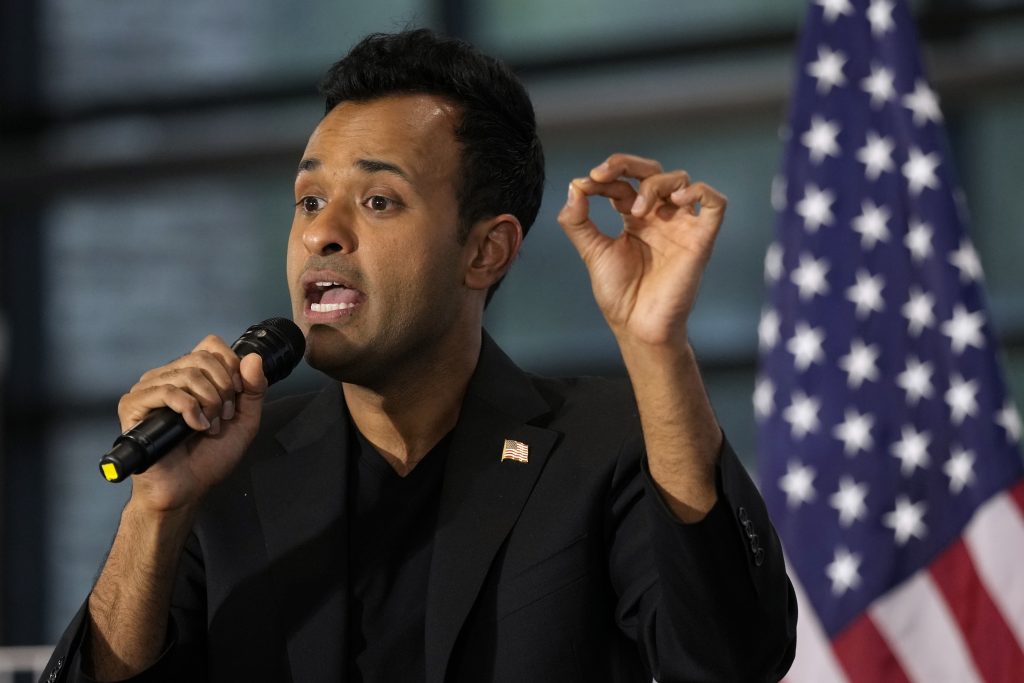
Vivek Ramaswamy
Resumé: Entrepreneur (2007-present), founder and CEO of Roivant Sciences (2014-2021)
Candidacy declared: February 2023
Candidacy ended: January 2024
Endorsement: Donald Trump
The youngest candidate in the Republican race at 38, Vivek Ramaswamy gained media attention for his “anti-woke,” pro-capitalism positions that rail against affirmative action in business and education.
He also sparked criticism for his foreign policy views, arguing “major concessions” should be given to Russia in order to end the war in Ukraine and that U.S. military support for Taiwan should have an expiration date. He also stoked anti-government sentiments by questioning the narratives surrounding 9/11 and the Jan. 6, 2021, attack on the U.S. Capitol.
Ramaswamy’s youthful bravado and constant media appearances won him support from some anti-establishment voters, but also made him a target of the other candidates. Although the notoriety led to a brief bump in his poll numbers, that support quickly dwindled away again as his positions and rhetoric received more scrutiny.
He dropped out of the race after finishing a distant fourth in the Iowa caucuses, and immediately endorsed Trump.
Notable policy positions: Raising the voting age to 25, with exceptions for military members, first responders or passing a civics test; term limits for non-elected government employees; abolishing or “rebuilding” federal institutions including the FBI and IRS.
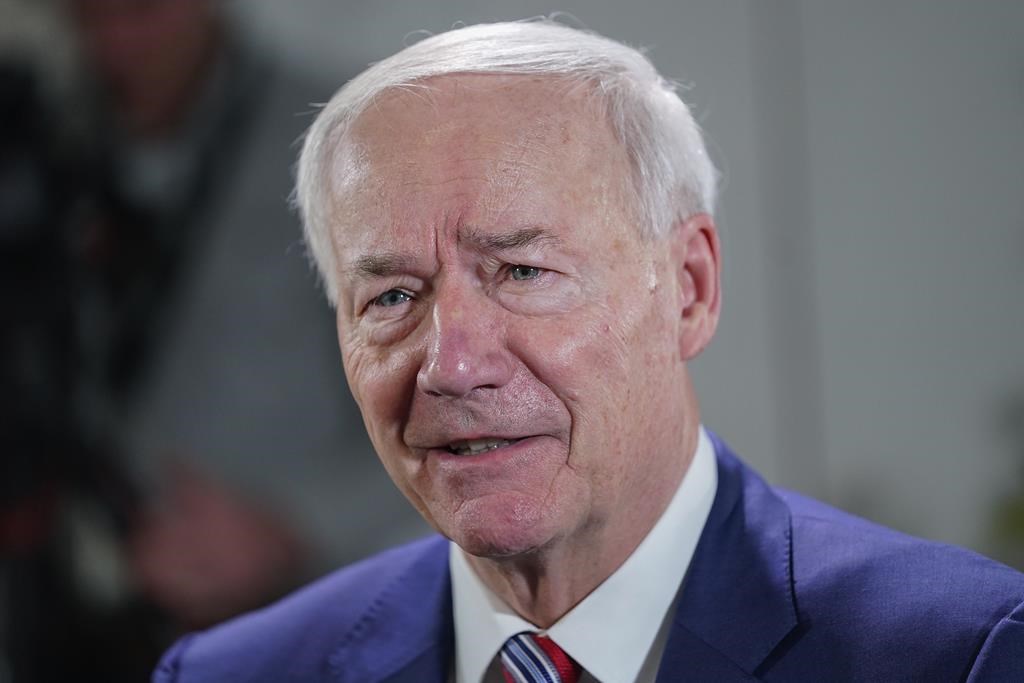
Asa Hutchinson
Resumé: Governor of Arkansas (2015-2023), U.S. House of Representatives (1997-2001)
Candidacy declared: April 2023
Candidacy ended: January 2024
Endorsement: Nikki Haley
Asa Hutchinson made the centrist pitch to Republican voters, counting on support for a steady and experienced conservative instead of populist candidates like Trump and DeSantis.
As governor of Arkansas, he wasn’t afraid to counter his party — he vetoed a bill that banned gender-affirming care for transgender minors, which was overridden by the state legislature — but he also supported a total ban on abortion, only saying later he wished the bill included limits for rape and incest.
Hutchinson had little success in the anti-Trump lane, with his support falling even further after the first Republican debate — making him ineligible for future debates. After vowing to stay in the race until the Iowa caucuses, he earned well below one per cent of the vote in the state and suspended his campaign the next day.
Notable policy positions: Additional funding for law enforcement; lower taxes; expansion of domestic energy resources.
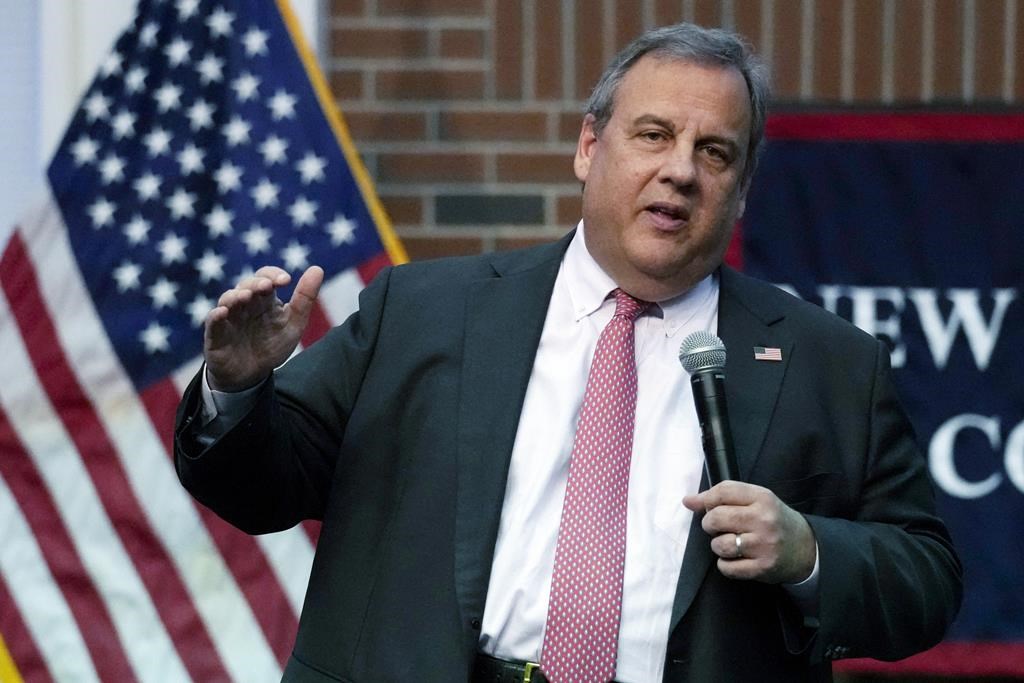
Chris Christie
Resumé: Governor of New Jersey (2010-2018)
Candidacy declared: June 2023
Candidacy ended: January 2024
Endorsement: None yet
Chris Christie was the first high-profile Republican to endorse Trump during the 2016 campaign, and continued to support him throughout even the lowest moments of his presidency.
That all changed after Jan. 6, and two years later, Christie is effectively staking his candidacy on ending Trump’s. He was willing to go much further than his rivals in attacking Trump and his record in office, calling him “self-serving” and a “failure” who used the White House to profit himself and his family.
Christie’s anti-Trump message failed to catch fire among most Republican voters. In his speech announcing the end of his campaign, he said he would continue to work to stop Trump from winning the Republican nomination and the presidency.
Notable policy positions: Wants to “reset” relationship with China by using trade tariffs to deter spycraft and restrictions on U.S. industries like social media
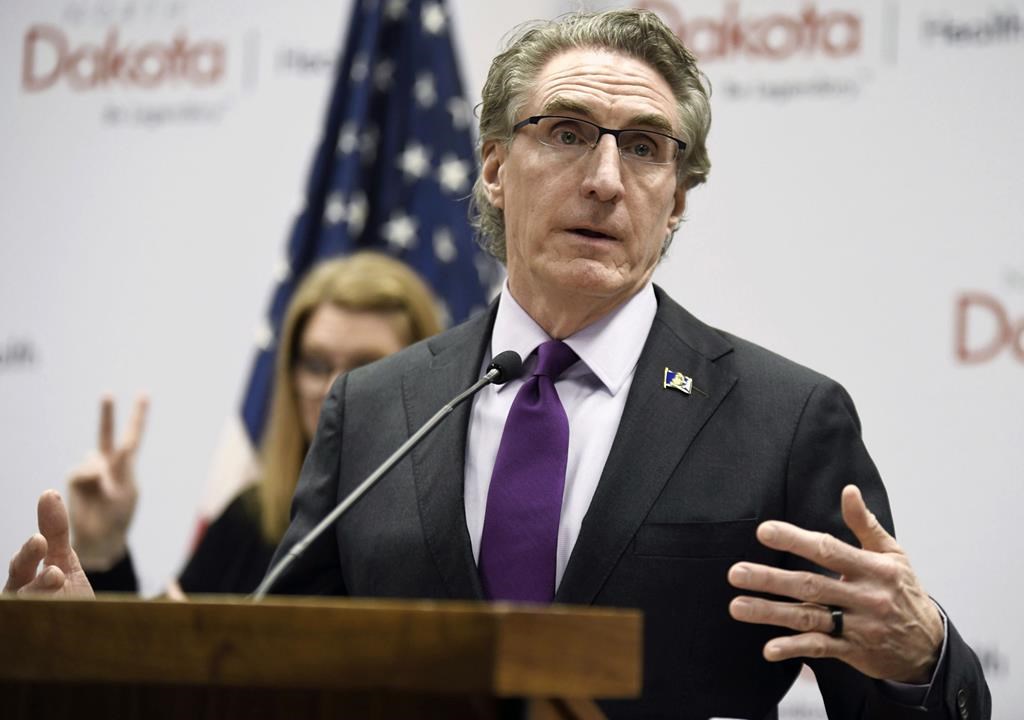
Doug Burgum
Resumé: Governor of North Dakota (2016-present)
Candidacy declared: May 2023
Candidacy ended: December 2023
Endorsement: Donald Trump
North Dakota Gov. Doug Burgum’s campaign focused on energy and infrastructure — two issues he said he has successfully pursued in his state, which is one of the top oil producers in the U.S. He said he wanted to bring “small-town values” to the rest of America.
The laws he signed this year include banning abortion with few exceptions up to six weeks’ gestation. Other laws prohibit schools and government agencies from requiring their employees to refer to transgender people by the pronouns they use, as well as barring transgender girls and women from competing in women’s sports.
Burgum suspended his campaign after failing to qualify for the third and fourth debates, despite earlier promising to stay in the race through the New Hampshire primary in January. He endorsed Trump a day before the Iowa caucuses.
Notable policy positions: Expand oil and natural gas production in U.S. and eliminate foreign energy purchases; bolster national security.
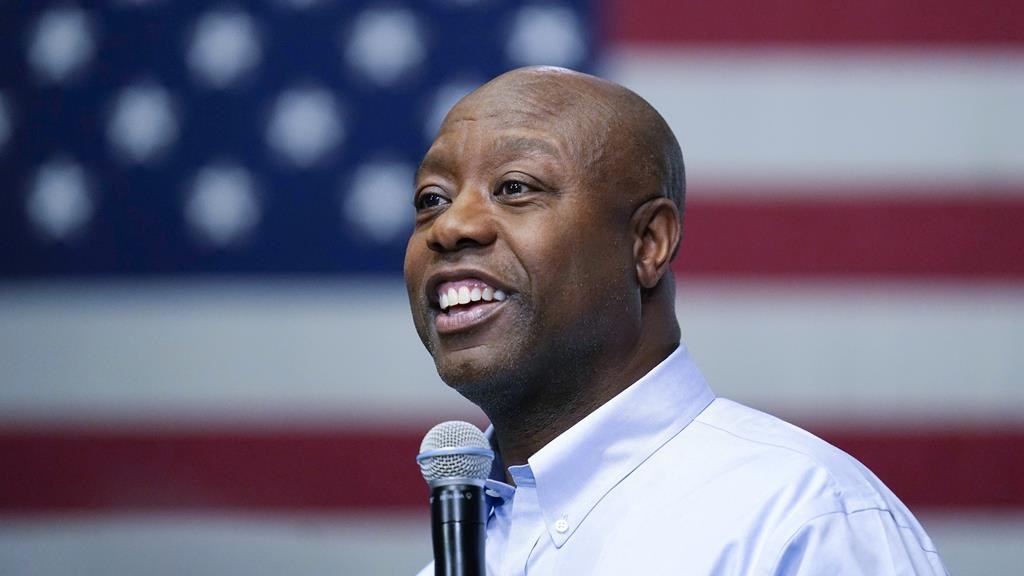
Tim Scott
Resumé: U.S. Senate (2013-present)
Candidacy declared: May 2023
Candidacy ended: November 2023
Endorsement: Donald Trump
Sen. Tim Scott attempted to centre his candidacy on something different from most of his competitors: positivity.
The only Black Republican in the Senate has used his life story — raised in poverty by a single mother in South Carolina, his grandfather was forced to drop out of elementary school to pick cotton — to make the argument that America is a land of opportunity far removed from the racism and bigotry that predates the civil rights era.
That pitch came with few distinct policies, with Scott instead pointing to his record in the Senate supporting funding for historically Black colleges and universities and “opportunity zones” that used tax breaks to promote development in underserved communities.
Ultimately, Scott was unable to gain traction in the crowded field, and his middling debate performances only solidified his weak standing with voters.
Notable policy positions: “School choice” that allows parents to send children to schools outside their district without financial burdens; border security, including funding the southern border wall and declaring war on drug cartels.
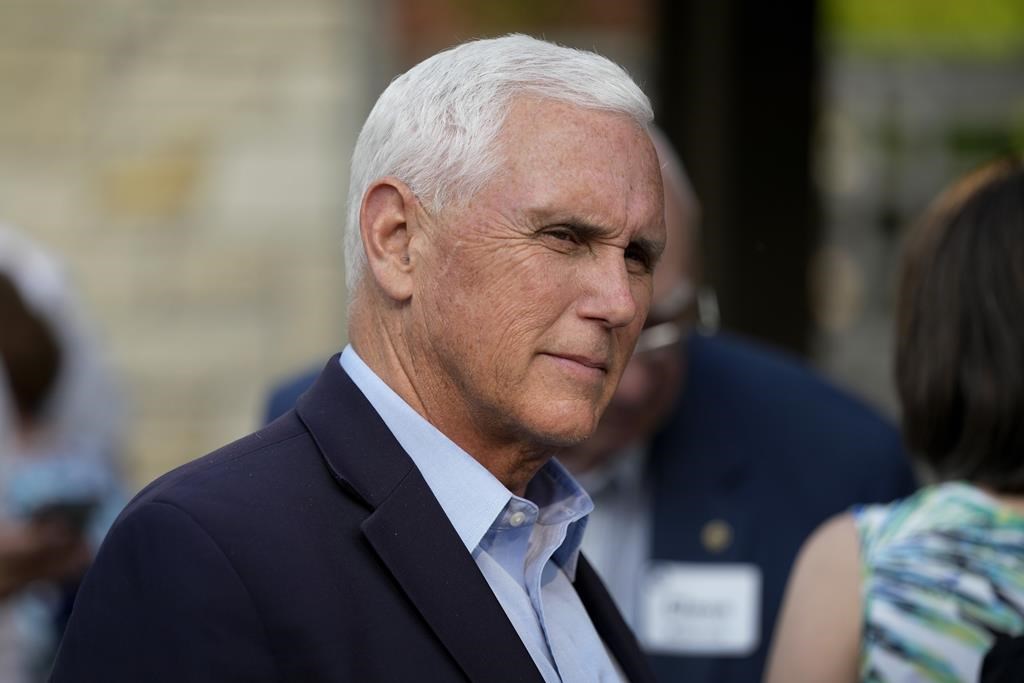
Mike Pence
Resumé: Vice-president (2017-2021), Governor of Indiana (2013-2017), U.S. House of Representatives (2001-2013)
Candidacy declared: June 2023
Candidacy ended: October 2023
Endorsement: None yet
After years serving as vice-president to Trump, Mike Pence’s relationship with him was broken on Jan. 6, 2021, when Pence’s life was threatened by Trump supporters angry over his refusal to reject the election results favouring Biden.
Since then, Pence has been clear that while he is proud of the pair’s White House track record, Trump was “wrong” to push Pence to ignore the Constitution for political gain.
Walking that tightrope ultimately proved to be impossible for Pence as he faced voters during the primary campaign, many of whom still blame Pence for certifying Biden’s win. Pence tried to separate himself from other candidates with his devout Christian worldview and hardline stance on abortion, but he failed to move the needle in a race that proved Pence’s vision of the Republican Party may be in the past.
Notable policy positions: Federal limits or bans on medical and surgical abortions; supports Ukraine winning the war against Russia; fiscal conservatism including cuts to Social Security, Medicaid and other federal aid programs.
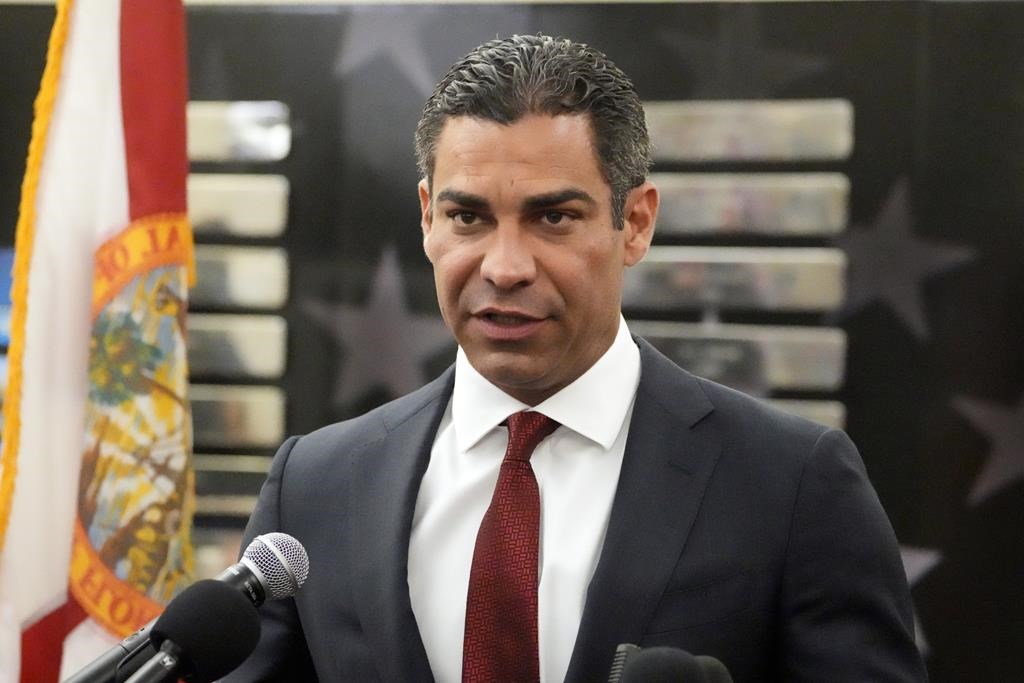
Francis X. Suarez
Resumé: Mayor of Miami (2017-present)
Candidacy declared: June 2023
Candidacy ended: August 2023
Endorsement: None yet
Francis Suarez had hoped to bring a different t0ne to immigration policy discussions as the only Hispanic candidate in the race. he also leaned on his success luring companies to Miami, with an eye toward turning the city into a crypto hub and the next Silicon Valley.
In addition to his work as mayor, Suarez is also a corporate and real estate attorney, and has been criticized for accepting payments from real estate developers with business in the city and for not disclosing his legal clients. He is also a promoter of cryptocurrencies and takes his salary as mayor in Bitcoin.
Suarez suspended his campaign shortly after failing to qualify for the first Republican debate.
Notable policy positions: Support for a 15-week federal abortion ban; general immigration reform.
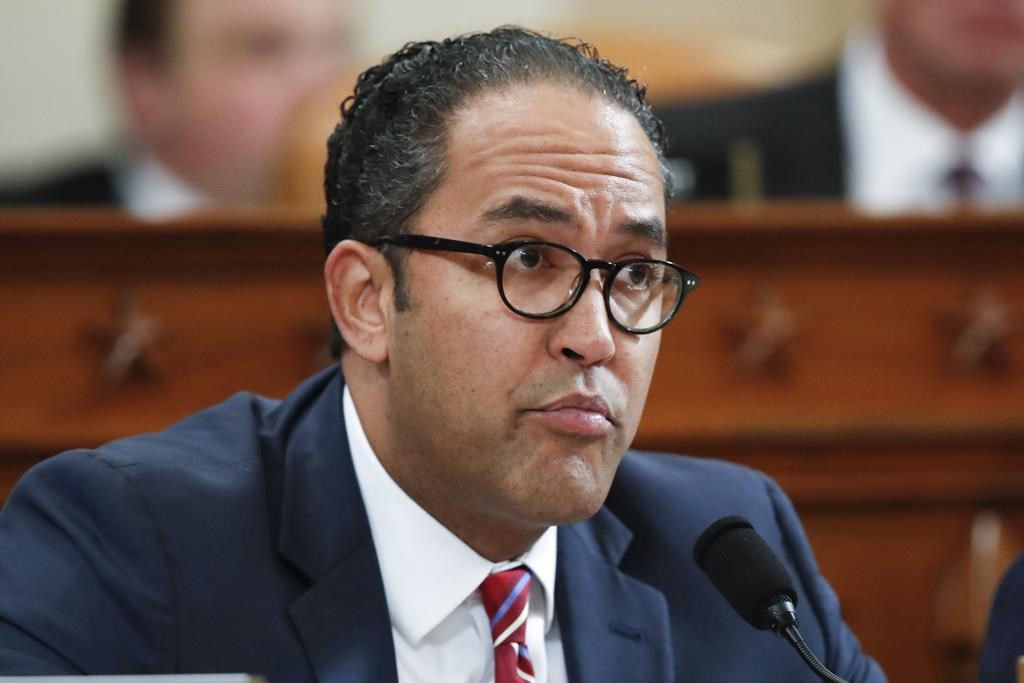
Will Hurd
Resumé: U.S. House of Representatives (2015-2021), C.I.A. officer (2000-2009)
Candidacy declared: June 2023
Candidacy ended: October 2023
Endorsement: Nikki Haley
A self-admitted “dark horse candidate,” Will Hurd ran in the moderate lane alongside Christie and Hutchinson and as a fierce critic of Trump, arguing he should not remain the leader of the Republican Party any longer.
He sought to further differentiate himself by focusing his campaign on artificial intelligence and immigration, pledging common-sense solutions to both issues. But he failed to qualify for either of the first two debates and failed to gain traction with voters in the early primary states.
Hurd dropped out shortly after the second debate and endorsed Nikki Haley.
Notable policy positions: Regulations for artificial intelligence, including permits for use of AI in critical infrastructure; competition with China rather than severing economic ties; address unrest in Latin American countries spurring illegal immigration at southern border
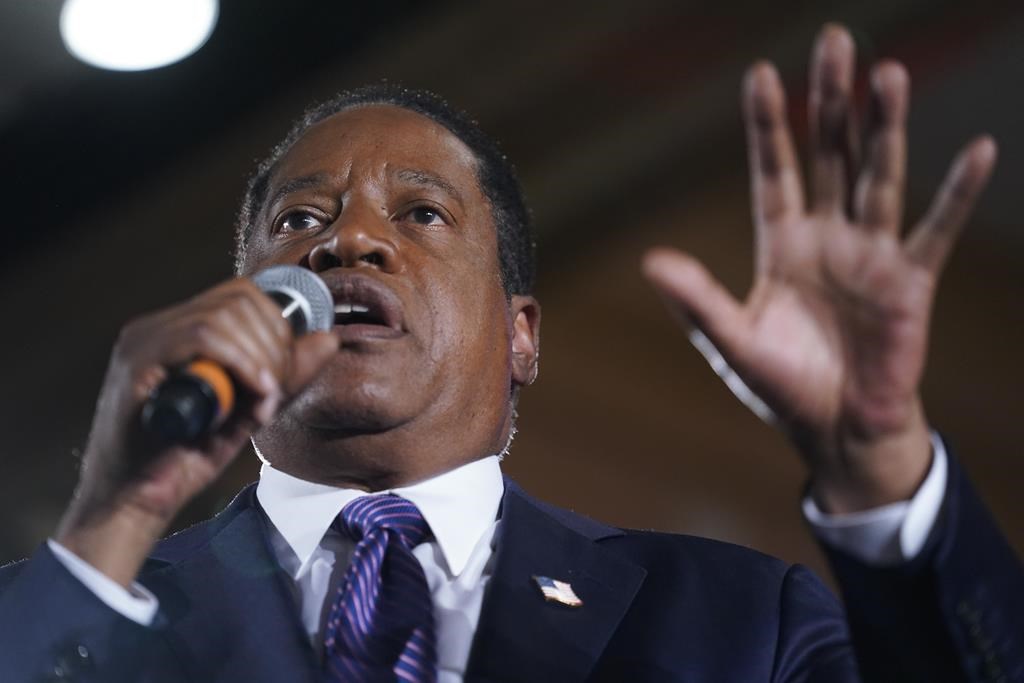
Larry Elder
Resumé: Conservative radio host and media personality (1993-present), lawyer
Candidacy declared: April 2023
Candidacy ended: October 2023
Endorsement: Donald Trump
Larry Elder first entered politics in 2021 when he ran to replace California Gov. Gavin Newsom in a recall election, earning the most votes of any replacement candidate but failing to unseat the governor.
He gained attention with his support for Trump’s presidency and his far-right views on abortion and public health restrictions during the COVID-19 pandemic. He also alleged without evidence that there would be “shenanigans” in the vote before election day, but did not contest his loss.
In his campaign announcement, Elder said the experience of running for office, and the millions of votes he received, showed he had a message that resonated with voters. Yet he remained the darkest of dark horse candidates and failed to qualify for the first two debates, ending his campaign shortly afterwards.
Notable policy positions: Elimination of critical race theory and diversity and inclusion initiatives in education; revitalizing American cities through small business incentives, law and order and sheltering and treating homeless.
—With files from the Associated Press
- Harvey Weinstein hospitalized after return to jail following rape conviction overturn
- California mom accidentally invites 487 people to child’s 1st birthday
- Canada is unblocking aid to Afghanistan but delay is ‘extremely frustrating’: advocate
- ‘Hiroshima-level casualties’ feared in final battle for North Darfur




Comments